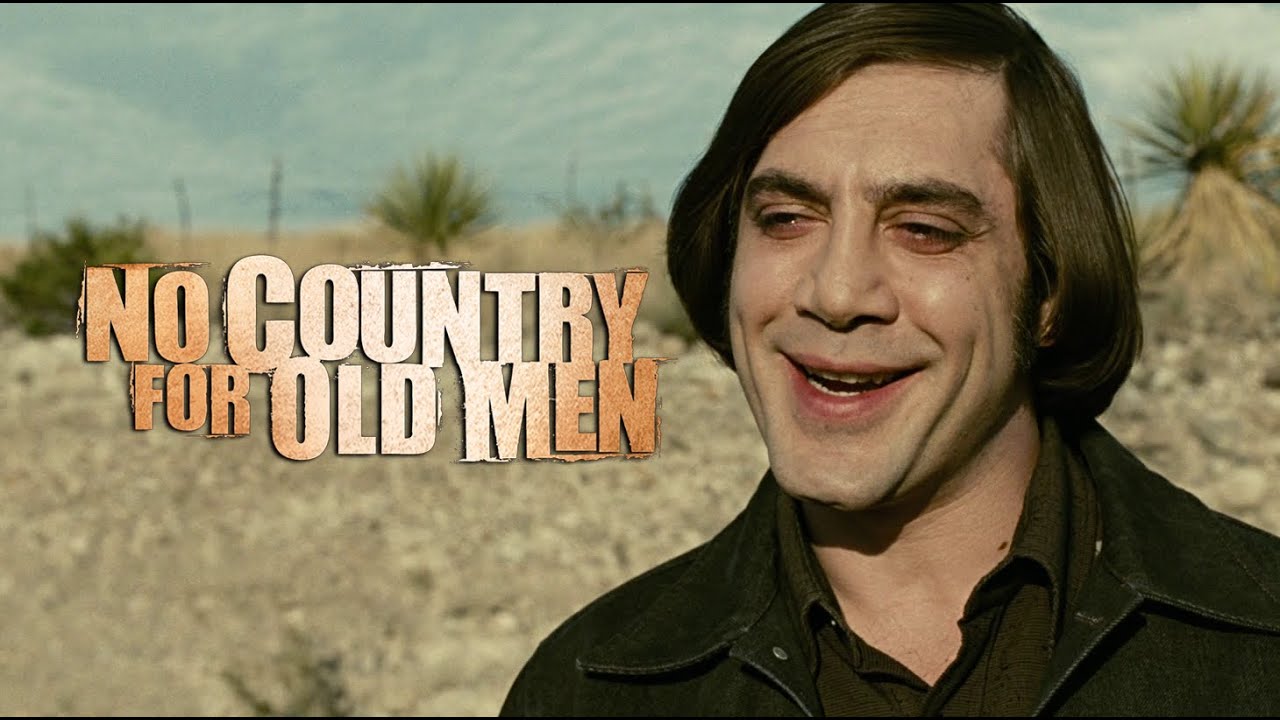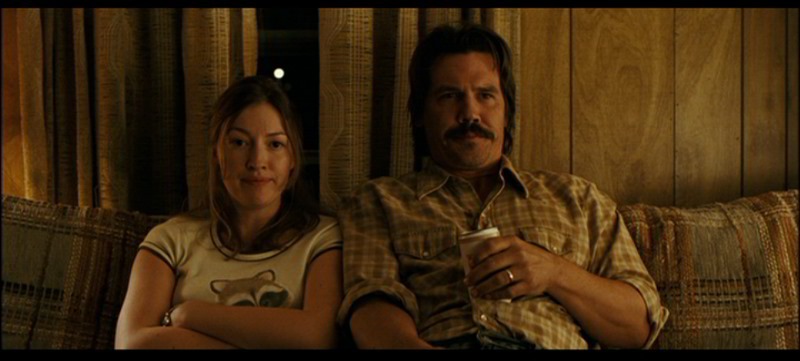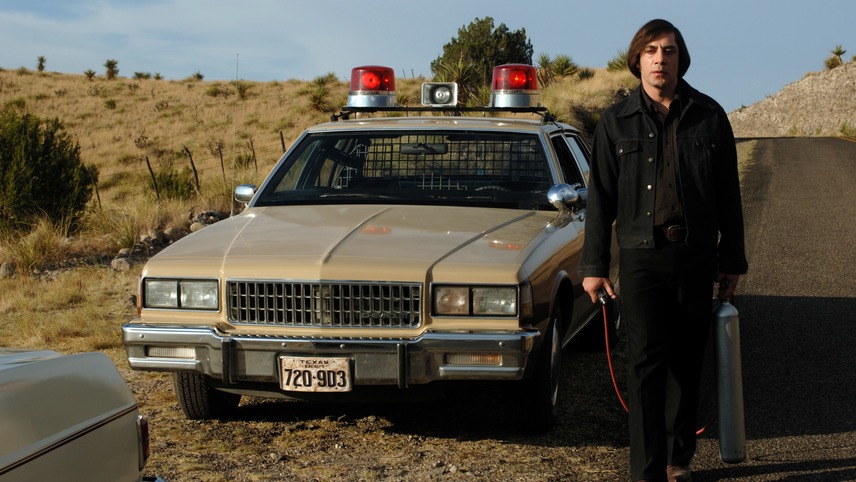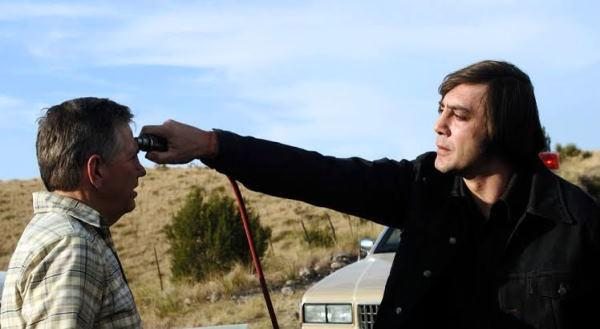
“No Country for Old Men,” released in 2007, is a gripping neo-Western crime thriller directed by Joel and Ethan Coen. Adapted from Cormac McCarthy’s Pulitzer Prize-winning novel of the same name, the film is a masterclass in storytelling, weaving themes of morality, fate, and the inexorable passage of time into a narrative that is both haunting and compelling. With standout performances from Tommy Lee Jones, Josh Brolin, and Javier Bardem, the film has left a lasting impact on audiences and critics alike, earning four Academy Awards, including Best Picture.
Set against the desolate landscapes of West Texas in the early 1980s, the film follows the aftermath of a drug deal gone wrong. A young welder named Llewelyn Moss (Josh Brolin) stumbles upon a grisly scene in the desert: a truckload of heroin, several dead bodies, and a briefcase filled with two million dollars in cash. Seizing the opportunity, Moss takes the money, unwittingly setting off a chain of violence and chaos. His decision to keep the money puts him directly in the crosshairs of Anton Chigurh (Javier Bardem), a ruthless hitman who operates by his own twisted code of ethics.
Chigurh is one of the film’s most chilling characters, embodying the concept of fate and randomness. With his iconic bowl haircut and cold demeanor, Chigurh is a harbinger of death who uses a silenced shotgun and a coin toss to determine the fates of his victims. His philosophy on life, where chance dictates outcomes, raises profound questions about morality and the nature of evil. Bardem’s performance is both mesmerizing and terrifying, earning him an Academy Award for Best Supporting Actor. Chigurh is not merely a villain; he represents a force of nature, an unstoppable entity that challenges the very fabric of human understanding.
In contrast to Moss’s impulsive actions, Sheriff Ed Tom Bell (Tommy Lee Jones) serves as the moral anchor of the film. Bell is a weary lawman grappling with the changing world around him. As he investigates the escalating violence, he reflects on the brutality he witnesses and his own feelings of helplessness in a society that seems to be spiraling out of control. Jones’s portrayal of Bell is marked by a poignant vulnerability, capturing the character’s deep sense of loss and nostalgia for a simpler time. Bell’s struggle to comprehend the evil that Chigurh represents resonates with viewers, inviting them to ponder the complexities of justice and morality.

The cinematography in “No Country for Old Men,” helmed by Roger Deakins, is nothing short of stunning. The film’s visual language captures the stark beauty of the Texas landscape, creating a palpable sense of isolation and foreboding. The wide shots of the vast, empty terrain mirror the existential themes explored in the narrative, emphasizing the characters’ solitude and the inevitability of their fates. Deakins’s work earned the film an Academy Award for Best Cinematography, solidifying its status as a visual masterpiece.

One of the most distinctive aspects of “No Country for Old Men” is its sparse dialogue. The Coen brothers employ silence effectively, allowing tension to build without the need for excessive exposition. Key moments are accentuated by the absence of score, creating an atmosphere of dread and suspense. This minimalist approach draws viewers into the emotional landscape of the characters, allowing them to fully experience the weight of their choices and the consequences that follow.
The film’s ending, which diverges from conventional narrative resolutions, has sparked much discussion and analysis. Rather than providing clear answers or a sense of closure, it leaves viewers with lingering questions about fate, morality, and the passage of time. Bell’s final monologue, where he reflects on his dreams and the inevitable changes he has witnessed, serves as a poignant commentary on the human experience. The ambiguity of the conclusion invites audiences to grapple with the themes presented throughout the film, prompting introspection and discussion long after the credits roll.

In conclusion, “No Country for Old Men” is a powerful exploration of morality, fate, and the complexities of human nature. Through its masterful direction, compelling performances, and striking cinematography, the film immerses viewers in a world marked by violence and existential dread. The Coen brothers have crafted a cinematic experience that transcends traditional genre boundaries, blending elements of thriller, drama, and philosophical inquiry. It remains a landmark achievement in modern filmmaking, challenging audiences to confront the darker aspects of life while contemplating the nature of good and evil in a chaotic world
